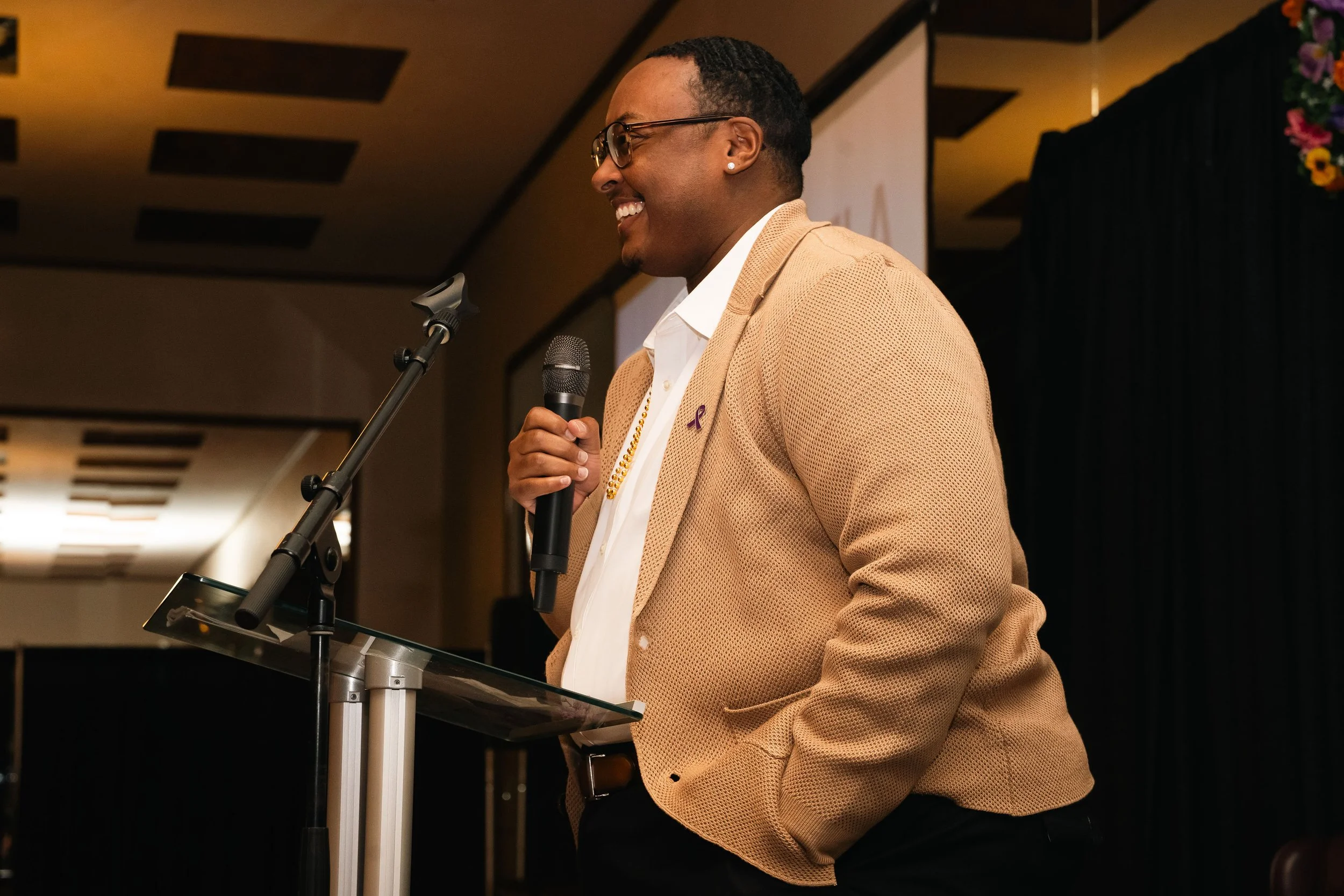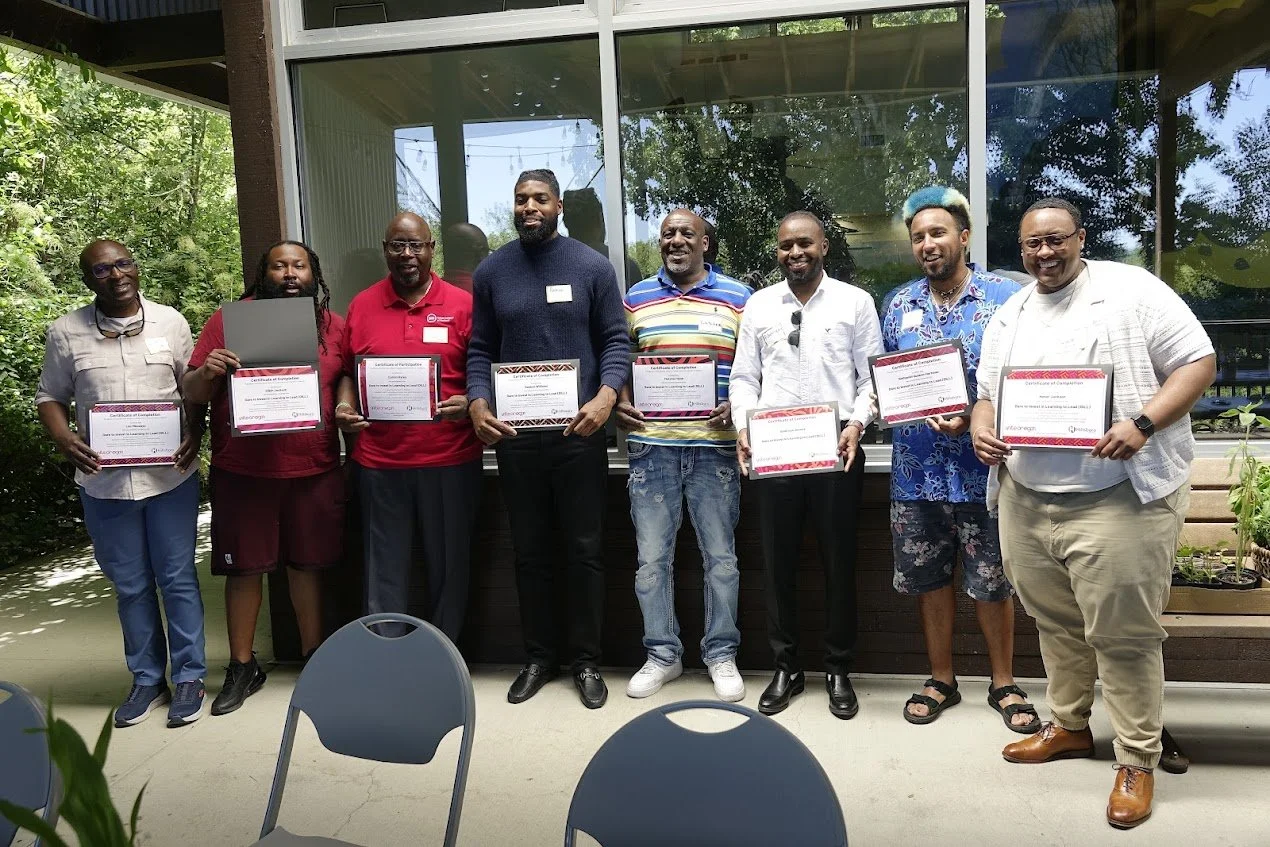Member Spotlight: Honor Jackson
At Unite Oregon, we are proud to see our program participants make a difference in our city and in the world. We are a member-based organization that works to build leaders like Honor to create lasting change and advocate for our communities. Honor was a participant in our Dare to Invest in Learning to Lead program in 2025, a civic leadership development and engagement training program designed for African male-identifying immigrants, refugees, and Black Americans in Washington County.
We interviewed Honor on his reflections on advocacy, the DILL program, and what it means to be a leader in our world.
Background & Personal Journey
Can you share a bit about your journey from participating in the DILL program to now being appointed Chairman of Bradley Angle?
My journey from the DILL program to Board Chair has been one of growth, reflection, and purpose. The DILL program taught me how to lead with authenticity and to see leadership not as a title, but as a responsibility to lift others and create belonging. That foundation really shaped how I show up in spaces like Bradley Angle. Stepping into the role of Chair now feels like a continuation of that and a chance to serve an organization that embodies safety, healing, and empowerment in a community I deeply care about.
What initially drew you to community advocacy and social justice work?
I’ve always been drawn to people and to understanding what helps them feel seen, safe, and supported. Advocacy, for me, grew out of that desire. I’ve witnessed how systems can both harm and heal, and I wanted to be part of the healing side — building connections, access, and opportunities that help people thrive.
Were there specific experiences in the DILL program that shaped your approach to leadership?
Absolutely. The DILL program emphasized leading from values and knowing your “why” and letting that guide every decision. I learned that leadership isn’t about having all the answers; it’s about creating trust, listening deeply, and making space for others’ voices to lead too.
Leadership & Bradley Angle
What does your role as Chairman at Bradley Angle entail, and what excites you most about it?
As Board Chair, my role is to help guide our collective vision, supporting our Executive Director, empowering our board, and ensuring that our decisions reflect both the needs of survivors and the values of the communities we serve. What excites me most is the opportunity to strengthen that bridge between leadership and lived experience and to make sure the voices of survivors, staff, and partners all have space in shaping our future. Bradley Angle has always been about empowerment and safety, and I’m proud to help carry that mission forward in new ways.
What do you see as the most pressing challenges facing survivors of domestic violence today, and how is Bradley Angle addressing them?
One of the most pressing challenges is access. Access to safe housing, to trauma-informed care, and to systems that truly understand the intersections of race, gender, and economic stability. Survivors don’t just need to escape violence; they need to rebuild lives. Bradley Angle addresses that by meeting people where they are, with compassion and cultural responsiveness, and by recognizing that healing doesn’t look the same for everyone. Our programs are designed to support the whole person — their safety, their stability, and their self-determination.
How do you hope to influence or grow the organization in your new role?
I want to help us grow in both reach and relationship. To expand our impact in the community while deepening the sense of connection and trust within the organization itself. That means building strong partnerships, investing in leadership at every level, and continuing to center equity and survivor voices in all we do. Growth for me isn’t just about numbers; it’s about presence — how we show up, how we listen, and how we lead with care.
Community & Impact
Can you share a story of a moment or project at Bradley Angle that has been particularly meaningful to you?
One that stands out is watching the energy around our recent gala. Seeing our community come together, from survivors to advocates, partners, and supporters, reminded me of the power of collective healing. The room held so much hope. It wasn’t just a fundraiser; it was a reflection of what’s possible when people unite around a shared purpose. It reminded me why this work matters beyond any one event — because at its heart, it’s about restoring dignity and possibility to people’s lives.
How do you see your work connecting with broader efforts for racial, social, and gender justice in Oregon?
You can’t separate domestic violence from racial, social, and gender justice. They’re intertwined. To truly support survivors, we have to address the systems that create vulnerability and inequity in the first place. My work and Bradley Angle’s sit right at that intersection. We’re not only helping people in moments of crisis; we’re also challenging the conditions that make that crisis possible. That’s the work of justice — healing the person and the system.
What advice would you give to others who want to become advocates in their own communities?
Start by listening. Advocacy begins with understanding someone else’s story and asking how you can stand beside them, not in front of them. You don’t need a title to make change, just consistency, empathy, and courage. The most powerful advocacy often starts small: one conversation, one action, one commitment to show up for others again and again.
Reflection & Inspiration
As October is Domestic Violence Awareness Month, what message would you like to share with the community?
My message is simple: believe survivors and stand with them, not just in October, but every day. Healing takes time, and it takes community. If you know someone who’s struggling, remind them they’re not alone and that help is out there. And if you’re in a position to give — your time, your resources, your voice, it all matters. Awareness is important, but action is what creates change.
How has being part of the DILL program influenced your view of community leadership and collaboration?
DILL taught me that leadership is never a solo act. The most impactful leaders I met in the program were the ones who built community around them and who knew that progress happens through shared ownership, not control. It shaped how I approach collaboration today: with humility, curiosity, and a deep respect for the collective wisdom in the room.
Looking back, what lessons from your journey do you think are most important for emerging leaders to hear?
That leadership is about alignment, not perfection. You don’t have to have it all figured out; you just need to stay rooted in your values and be willing to grow. I’ve learned that the best leaders are the ones who can hold vision and vulnerability at the same time. Lead with heart, stay teachable, and remember that your presence is part of the change you’re creating.
Honor Jackson (he/him) is a strategic marketing professional, entrepreneur, and community leader with over four years of experience in higher education, healthcare, and small business. He currently serves as a Project Coordinator at Portland Community College, leading digital initiatives and internal system rollouts. Honor is the co-founder of Jackson Shine Co., a media-recognized brand, and serves on the board of Bradley Angle, supporting fundraising, advocacy, and community outreach. He holds an MBA in Marketing and Strategy and is completing his CAPM certification. Rooted in purpose, Honor combines strategic insight with authentic storytelling to build inclusive spaces of community, connection, and belonging.
About DILL: DILL offers interactive, participant-driven sessions using a popular education model to develop leadership skills and foster collective action in civic engagement, economic empowerment, and social justice. For those who are interested or have questions, please contact the Washington County Chapter Team at wacostaff@uniteoregon.org.



